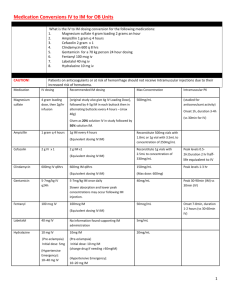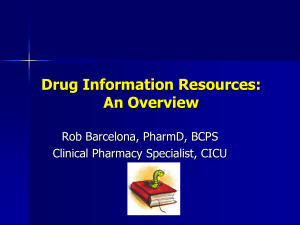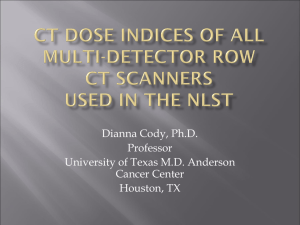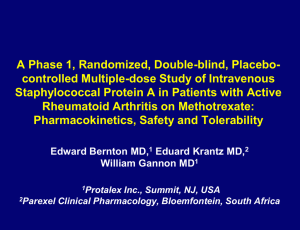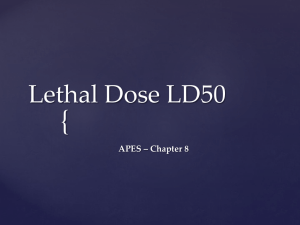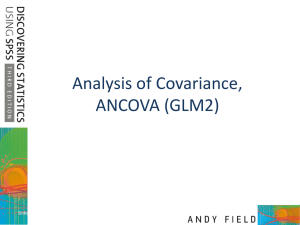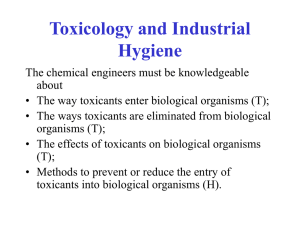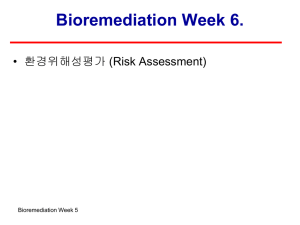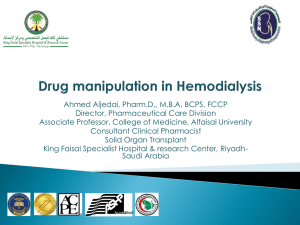NBI-98854
advertisement
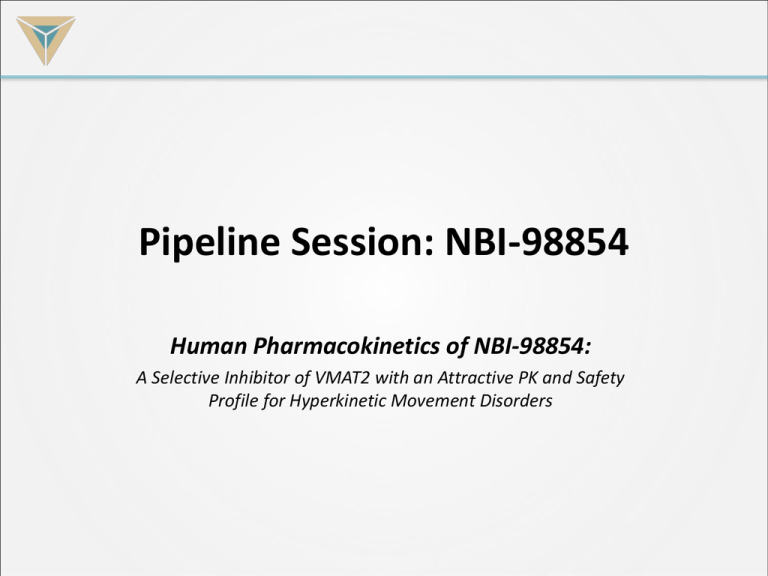
Pipeline Session: NBI-98854 Human Pharmacokinetics of NBI-98854: A Selective Inhibitor of VMAT2 with an Attractive PK and Safety Profile for Hyperkinetic Movement Disorders VMAT2 Target for Hyperkinetic Movement Disorders Tardive dyskinesia Schizophrenia Huntington’s chorea Tardive dystonia Tourette syndrome Dystonia Kenney and Jankovic, 2006 The only approved medication targeting VMAT2 (Xenazine/Nitoman) has pharmacologic and pharmacokinetic profiles that result in a safety profile which limits clinical utility Transaxial PET images depicting the preferential distribution of α-[C11]-htbz at basal ganglia in a normal human subject. Koeppe et al., 1999 NBI-98854: The Best in Class VMAT2 Inhibitor Current Option Not Appropriate for All Patients Tetrabenazine (TBZ) (±)--DHTBZ (Mix of 4 stereoisomers) VMAT2-Ki D2-Ki (+)--DHTBZ 1-4 nM >10 mM (-)--DHTBZ 200 nM 192 nM (+)-β-DHTBZ 14 nM >10 mM (-)-β-DHTBZ 710 nM 57 nM Human PK Current Treatment Regimen • Suboptimal Selectivity • Unwanted stereoisomers confer poor selectivity • Suboptimal Pharmacokinetics • Low bioavailability, high variability • Polymorphic CYP2D6-dependent metabolism • Requires dose titration • bid or tid dosing regimen • Side Effects Limit Usefulness • Depression, parkinsonism, akathisia 1. Kilbourn, et al., Eur. J. Pharmacol, 1995 2. Mehvar, R. et al Drug Metabolism and Disposition 1986 3. Neurocrine Data Neurocrine’s Solution: Slow Systemic Release Inert O O N O H Very slow OH N O NBI-98854 H OH NBI-98782 ((+) -DHTBZ) (The active metabolite) VMAT2-Ki D2-Ki NBI-98782 (+) -DHTBZ 1-4 nM >10 mM NBI-98854 187 nM >10 mM Potential advantages over approved therapies • Reduced PK variability » • qd dosing Improved side effect profile » » Parent compound has low VMAT2 activity The active metabolite is potent, has attenuated Cmax and is highly selective Single Ascending Dose Study NBI-98854-0801 Period 1 Admit to Center Screening < 27 days Periods 2, 3 and 4 repeat Discharge from Center D-1 D1 D2 D3 D4 D5 D6 D7 D8 etc Study Rx Pharmacokinetic samples at t=0 (predose),15, 30, and 45 min., 1, 1.25, 1.5, 2, 3, 4, 6, 8, 10, 12, 18, 24, 48, 72, 96 and 120h postdose Final Visit: Day 28 (+ 2 days) Cognitive State Test Prolactin 12- lead ECG in Triplicate Orthostatic Vital Signs ~30 days Cohort Cohort 2 Placebo / NBI-98854 Dose (mg) 1 Placebo 1 2 5 12.5 2 Placebo 12.5 25 50 75 ~30 days Cohort 1 Review of Safety and PK data prior start each Period 5 Clinical Safety Summary NBI-98854-0801 • NBI-98854 generally safe and well tolerated • No Serious Adverse Event (SAE) • No clear Treatment Emergent Adverse Event (TEAE) trends or signal » » » » No clinically significant ECG changes or QTcF prolongation No clinically significant hemodynamic changes Laboratory values unremarkable No evidence of sedation, lethargy and somnolence • Cog State testing : performance was stable across the study period when compared to placebo and baseline. 6 NBI-98854: Human PK at 75 mg NBI-98854 NBI-98782 CONFIDENTIAL 7 Human Exposure of the Active Metabolite NBI-98782 Compared with (±) -Dihydrotetrabenazine Each circular dot represents an individual subject, and the horizontal lines represent the means for NBI-98782 after an oral dose of NBI-98854 (75 mg). The square dots bracket the range of concentrations of (±)α-DHTBZ that have been reported in the population of subjects taking 50 mg daily dose of tetrabenazine (FDA approval information for Xenazine®. CONFIDENTIAL 8 NBI-98854 for hyperkinetic movement disorders: Product profile CxT comparison (±)α-DHTBZ vs. NBI-98782 Single, highly selective small molecule VMAT2 inhibitor Favorable safety and tolerability profile » » » » » Steady state simulation (75 mg NBI-98854 qd) Reduced Cmax Selective: no off-target effects/pharmacology Reduced PK variability Predictable metabolism Reduces need for dose titration QD dosing Novel small molecule Scalable manufacturing route Clinically proven MOA
